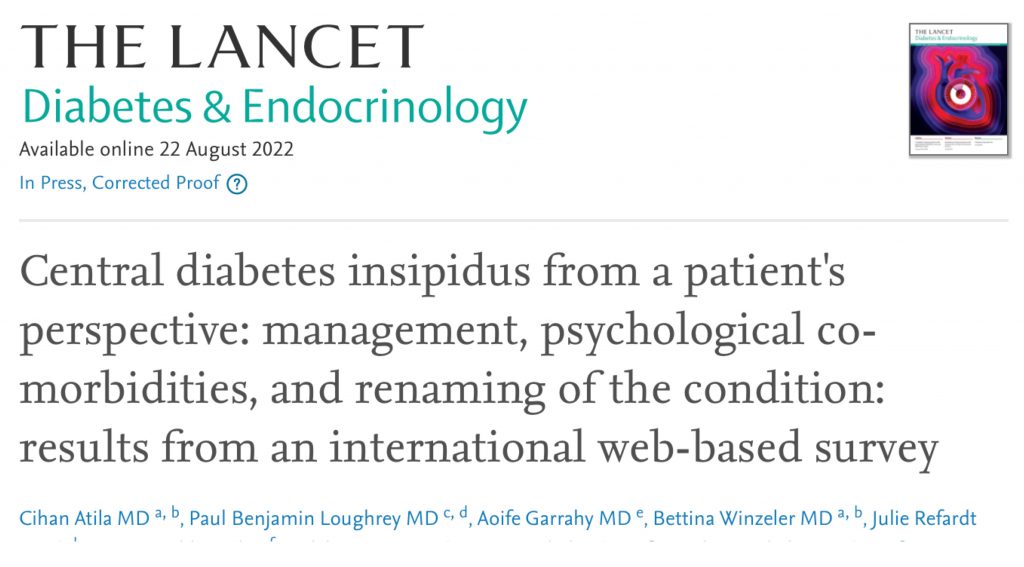Last year, Got Diabetes Insipidus group director Pat Gildroy was asked to be the patient representative for the development and distribution of the DImond Patient Survey. Pat reached out to PWN for help in generating responses and amplifying this important work in what turned out to be the largest diabetes insipidus patient survey to date. We were delighted to be able to help. There were 1034 participants, including caregivers of young and adult children. Principal investigator Dr.Cihan Atila from Universitätsspital Basel, Switzerland, provided a brief summary to PWN and a link to the study, which is available free of charge. He also sent us a lovely letter with some of the key findings of the survey/.
Thank you, Pat and Dr. Atila, for your work and dedication!
Here is a copy of the letter
Dear Lewis, Dear Jorge,
I am very proud to share the results of our DImond survey published in the Lancet Endocrinology [Central diabetes insipidus from a patient’s perspective: management, psychological co-morbidities, and renaming of the condition: results from an international web-based survey]. Click here for a Link to the article.
Thank you very much again for sharing the link to the survey (we have acknowledged you both in the paper). You are welcome to share the paper with your patients and the homepage of pituitary world news.
To summarize; we have six key findings:
1/6: Hyponatremia is a well-known side-effect of desmopressin treatment. In our cohort, 26% of patients had at least one hyponatremic episode leading to hospitalization!
2/6: Patients performing desmopressin-escape (a method to intentionally omit to delay desmopressin until breakthrough symptoms occur and to allow aquaresis) had a lower hyponatremia prevalence (22%) compared to those not aware of this method (34%).
3/6: 24% had problems accessing desmopressin during hospitalization – the most common reasons were non-availability of desmopressin (56%)
4/6: During hospitalization, one in seven patients did not receive desmopressin while in a fasting state (nil by mouth) without intravenous fluid replacement and reported symptoms of dehydration.
5/6: Key point 5/6: 80% indicated that healthcare professionals had confused their condition with diabetes mellitus on at least one occasion – 85% preferred a renaming of the condition.
6/6: 36% had psychological problems or recognized psychological changes subjectively associated with their diabetes insipidus, and 64% reported lower QoL!
Best wishes
Cihan
Dr. med. Cihan Atila
Universitätsspital Basel
Abteilung für Endokrinologie, Diabetologie & Metabolismus
Petersgraben 4
4031 Basel
Click here for more articles and podcasts on Diabetes Insipidus
© 2022, Pituitary World News. All rights reserved.
